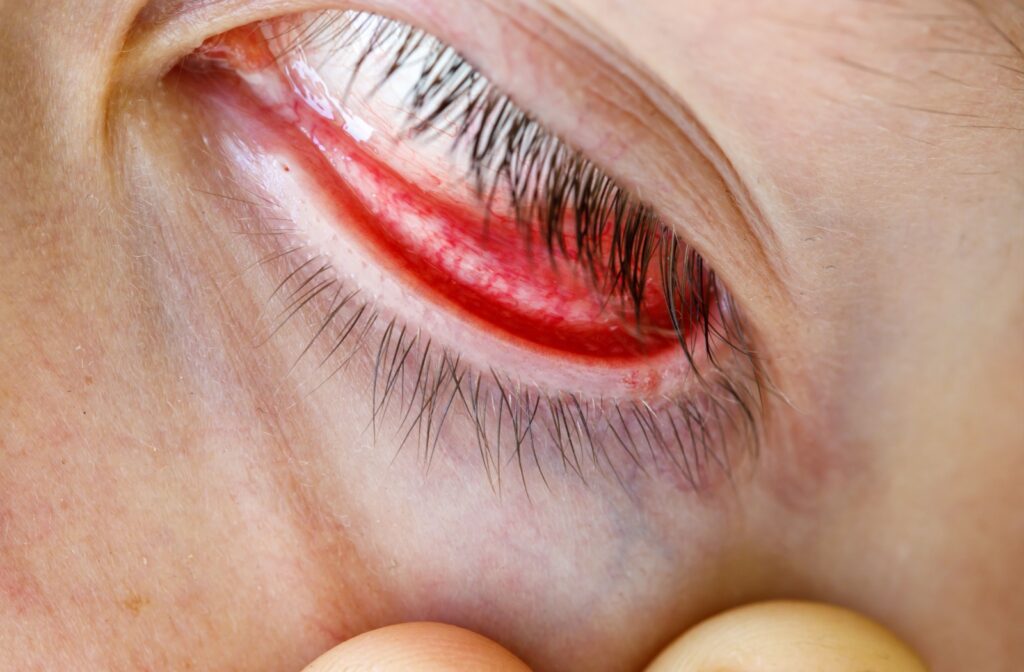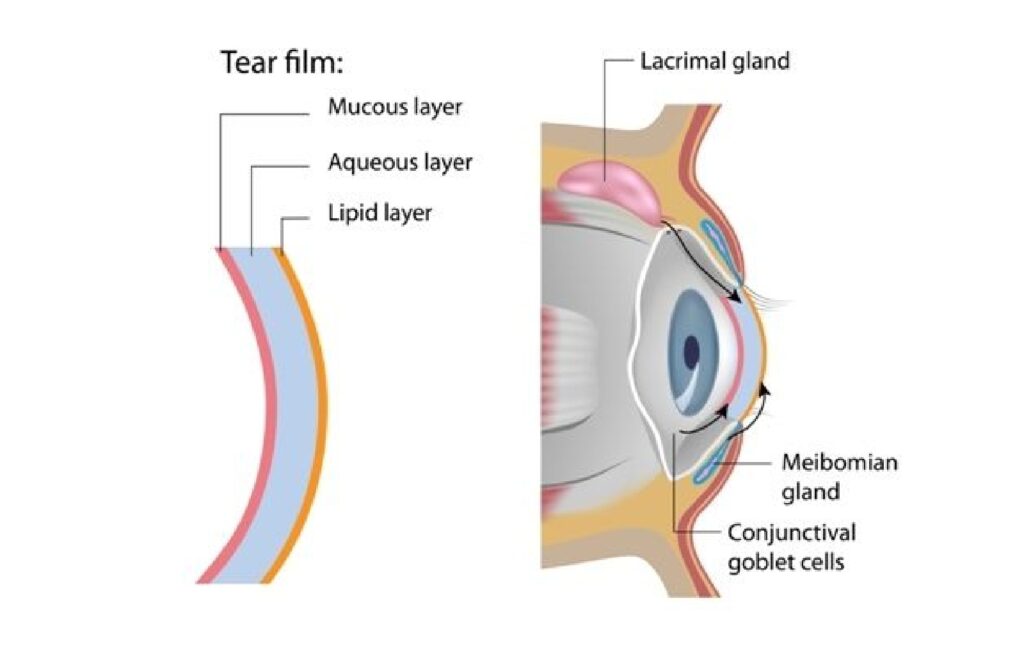Waking up with eyes that feel like sandpaper. Blinking constantly throughout the day, hoping for relief that never comes. Struggling to focus on your computer screen because your vision keeps blurring. These daily challenges affect millions of people with meibomian gland dysfunction, and if you’re reading this, you likely know exactly how frustrating these symptoms can be.
While severely damaged meibomian glands cannot fully regenerate, early intervention and proper treatment can often restore function to glands that are blocked or partially compromised.
What Are Meibomian Glands?
Meibomian glands are tiny oil-producing glands along the edges of your upper and lower eyelids. Each eyelid contains about 25 to 40 of these specialized glands. Their primary responsibility involves producing meibum, an oil that helps keep your eyes moist and prevents your tears from evaporating too quickly.
When these glands become blocked or stop working properly, your eyes can start to feel dry, gritty, or irritated. Even everyday activities like reading, using a screen, or spending time outside can become uncomfortable experiences rather than enjoyable parts of your day.
The consequences of untreated meibomian gland dysfunction extend beyond simple discomfort. Without proper treatment, MGD can lead to:
- Blurred vision.
- Light sensitivity.
- Frequent eye infections.
Root Causes Behind Gland Problems
Meibomian gland dysfunction develops through various factors including age, lifestyle choices, environmental conditions, and underlying medical issues. After age 40, these glands naturally slow down their oil production and become more susceptible to blockages.
Modern lifestyle habits contribute significantly to gland dysfunction. Extended screen time reduces your natural blinking rate, which directly affects how well oils release from the glands. Environmental factors like dry climates, air conditioning, and frequent contact lens wear create additional stress on your eye’s natural lubrication system.
Underlying health conditions also play important roles in gland function. Rosacea, autoimmune disorders, and hormonal changes can all impact how well your meibomian glands perform their essential duties. Poor eye hygiene practices, such as inadequate makeup removal, allow buildup and blockages to develop over time.
The encouraging news is that healthy habits combined with early professional treatment can help protect your glands and maintain their function for years to come.
Gland Recovery & Restoration
Restoring meibomian gland function requires understanding the extent of damage that has already occurred. When glands become severely damaged or have completely atrophied, they cannot grow back or regenerate new tissue. However, glands that remain partially functional or are simply blocked often respond well to appropriate treatment approaches.
The key lies in early intervention and consistent care. With proper treatment, many patients experience significant improvement in gland function, leading to better tear quality and reduced symptoms. While complete restoration may not always be possible, protecting remaining gland function and preventing further deterioration becomes the primary focus.

Solutions for Lasting Relief
Managing meibomian gland dysfunction often requires more than just home care routines. Eye care provides several advanced treatment options designed to improve gland function, reduce uncomfortable symptoms, and protect your long-term eye health. Depending on your condition’s severity, your optometrist may recommend one treatment or a combination of therapies.
Intense Pulsed Light Therapy
Originally developed for dermatological conditions, IPL therapy has demonstrated promising results for MGD treatment. This approach works by reducing inflammation around the glands and breaking down stubborn blockages that prevent proper oil flow. The treatment helps restore more natural gland function and creates better tear film stability across the eye’s surface.
TearCare
TearCare is a blink-assisted device designed to provide targeted heat therapy to your eyelids, effectively addressing blockages in the meibomian glands. These blockages are a common contributor to dry eye, particularly in cases of meibomian gland dysfunction (MGD).
During the session, the TearCare system gently applies heat to your eyelids, loosening clogged oils in the glands. Following the heating phase, your doctor will carefully evaluate your meibomian glands and use gentle pressure to clear any remaining blockages.
BlephEx
BlephEx is an FDA-approved treatment designed to address the symptoms of blepharitis and dry eye. Blepharitis is a common condition characterized by inflammation around the eyelids, often leading to dry, flaky skin that can irritate the eyes and contribute to discomfort.
The BlephEx treatment utilizes a spinning, Q-tip-like device that gently exfoliates the eyelid margins. This process effectively removes the buildup of dry skin, debris, and excess bacteria that can exacerbate symptoms.
Daily Habits That Support Your Gland Health
Clinical treatments work most effectively when combined with supportive lifestyle habits. Small, consistent changes in your daily routine can enhance treatment results and help maintain comfortable eyes over the long term.
- Improving Your Screen Habits: Spending too much time on screens can make you blink less, which can leave your eyes feeling dry and tired. The 20-20-20 rule is an easy way to give your eyes a break: every 20 minutes, look at something 20 feet away for at least 20 seconds.
- Proper Eye Hygiene Routines: Makeup residue, environmental pollutants, and daily debris can gradually block gland openings and impair function. Gentle daily eyelid cleansing, particularly before bedtime, helps prevent harmful buildup and maintains healthy glands.
- Supporting Your Overall Wellness: Chronic stress, inadequate sleep, and poor hydration habits all impact your eye health in measurable ways. Creating a well-balanced daily routine that supports your general wellness directly benefits your eyes and can improve gland function over time.
- Choosing Eye-Healthy Nutrition: Anti-inflammatory foods and omega-3 fatty acids found in fish, flaxseed, and walnuts actively support healthy oil production while reducing inflammation around the glands.
Taking Control of Your Eye Comfort
Your meibomian glands play a crucial role in maintaining comfortable, healthy vision throughout your daily activities. While severely damaged glands cannot regenerate completely, early intervention and comprehensive treatment may sometimes restore function to compromised glands.
Every day you wait allows dysfunction to potentially progress, making early action your most valuable tool for preserving gland function and maintaining comfortable vision.
At Eye Care Plus, our dry eye specialists are ready to evaluate your meibomian gland function and develop personalized treatment strategies. Take the first step toward lasting results and schedule your comprehensive dry eye evaluation today.



